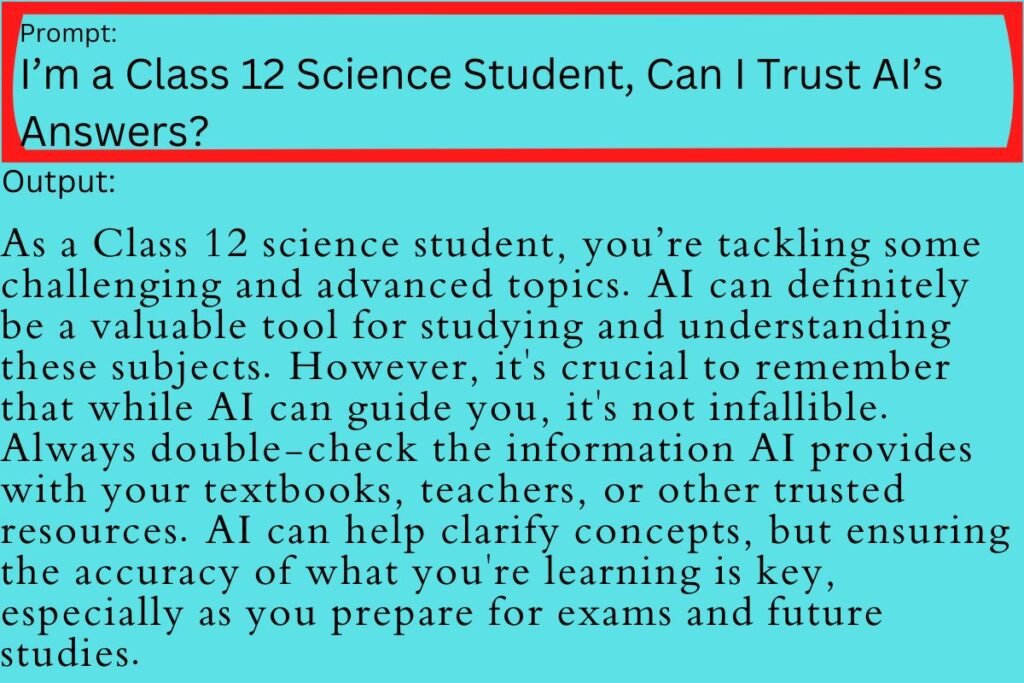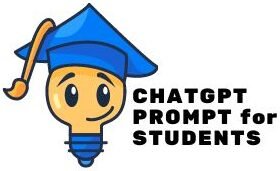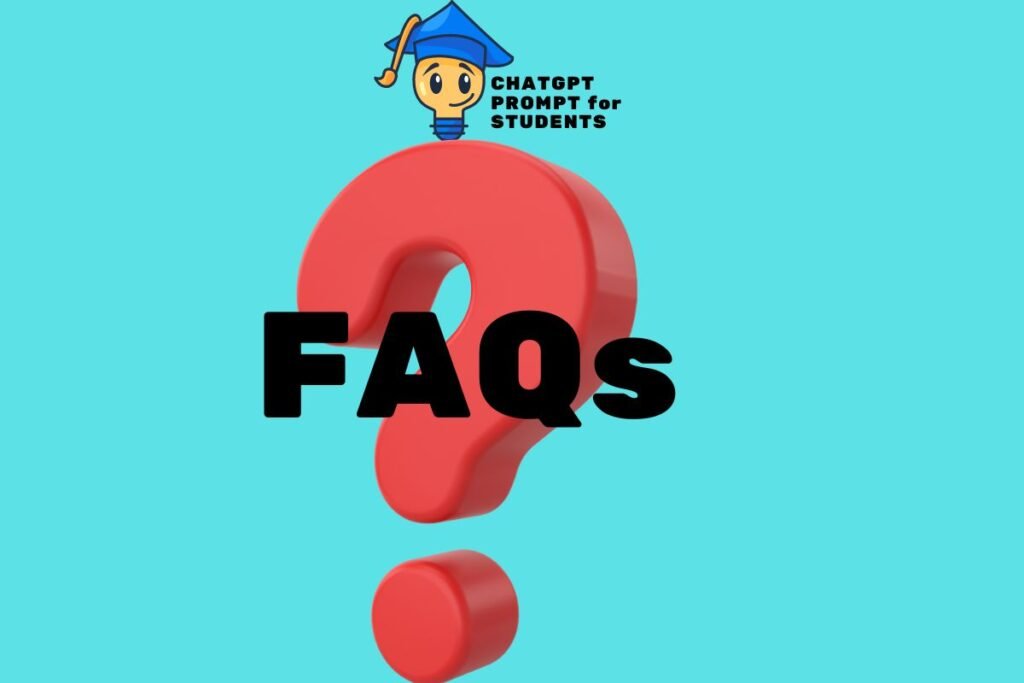Nowadays, AI technology is rapidly changing how we learn and teach. As an educator, I see AI as a powerful tool that can offer personalized learning to every student, no matter where they are or what they can afford. Honestly, I’m very much successfully guiding my students on “How to Make AI a Personal Tutor?”. This is part of my mission. However, I also understand that there are concerns about its use.
The following FAQs are designed to answer common questions and clear up any confusion. Whether you’re a student, parent, or educator, I hope this page will help you understand how AI, like ChatGPT, Claude AI, and Perplexity AI can be safely and effectively used in education.
In the end, I share my personal experience.
So, let’s dive in!
List of Typical Qs&As
I started to leverage ChatGPT in April 2023. I enjoy it! Whenever I started to guide students, I faced hundreds of questions. My students and their parents, and also my colleagues have raised several questions. Since then, I watched tons of YouTube video lectures and media news from AI experts and educators like Sal Khan, and Sam Altman, the Godfather of AI. I read articles, research papers and surveys done by authentic sources, like MIT, Standford University, Pew Research etc.
Not only I learned but also I experimented with the Qs&As before suggesting my students. In my journey, I find that there are a few basic concerns, which are quite natural to any new invention, regarding the use of AI in education. The following are the shortlisted FAQs and their potential answers:
Let’s begin with the question that’s on many parents’ minds:
1. Is AI Safe for My Child?
• Yes, AI can be safe when used responsibly. After the release of OpenAI’s ChatGPT, there are so many AI tools available in today’s online education market. Everyone is claiming personalized learning experiences. However, it’s important to monitor how your child uses these tools, just as you would with any other technology. If educators and parents work together, AI can be used safely and constructively.
Note: Please never share any personal data online.
Moving on to another common concern among parents and educators:
2. Will AI Encourage Cheating?
• Obviously, AI can be misused, just like any other tool. But, it can also be used to promote quality learning with the help of effective inputs. For example, AI can help students understand difficult topics or practice problem-solving. The key is to teach students how to use AI as a learning aid, not as a way to cut corners.
Since we’re discussing potential risks, let’s address the issue of privacy:
3. How Does AI Protect My Child’s Privacy?
• Privacy is a top concern with AI tools. AI experts are training their chatbots with strong privacy protections and day by day they are improving the algorithm. They do not store personal data without permission. Parents and educators should always check the privacy policies of any AI tool before allowing students to use it.
Given the emphasis on privacy, trust becomes a significant factor:
4. Is AI Trustworthy?
• AI is designed to provide accurate and helpful information. However, it’s important to remember that AI is not perfect. Sometimes, it might make mistakes or misunderstand a question. This is why it’s always a good idea to double-check information, especially if it’s for something important.
Next, let’s consider the reliability of AI’s responses, a concern often raised by students:
5. Can I Rely on the Answers Provided by AI?
• AI can be a great resource for learning, but it’s best to use it as one of several sources. For complex questions, especially in subjects like science or math, it’s important to consult textbooks, teachers, or other reliable sources. AI is a tool to help you learn, not the final authority on any subject.
This brings me to a specific question from a high school student:
6. I’m a Class 12 Science Student, Can I Trust AI’s Answers?
• As a Class 12 science student, you’re dealing with advanced topics. AI can be very helpful for studying and understanding these topics. However, always verify the information with your textbooks, teachers, or other trusted resources. AI can guide you, but it’s important to ensure the accuracy of the information you’re using for your studies.

While students are eager to use AI for learning, some educators wonder about its role:
7. Can AI Replace Teachers?
• It’s a million-dollar question. My straightforward answer is NO. AI cannot replace teachers. Instead, it can support them. AI can help teachers by providing additional resources and personalized tutoring for students. This allows teachers to focus more on guiding and inspiring their students, which AI cannot do.
Please don’t be afraid of ChatGPT, but make it your knowledge hub.
Given AI’s growing presence in education, questions about bias naturally arise:
8. Is AI Biased?
• AI is only as good as the data it is trained on. If the data has biases, the AI might too. However, developers are working hard to reduce these biases. It’s important for educators to be aware of this. And use AI tools that are transparent about their data and methods.
Remember, we are the DRIVER.
The following issue is less important when we consider using AI for board-based learning. This makes sense when crafting thesis papers and any research articles or blog posts.
9. How Can AI Be Used Without Encouraging Plagiarism?
• Students can learn how to write and research better with the help of AI. But it should not be used to generate final assignments. Educators can guide students on using AI as a brainstorming tool or to get feedback on drafts. This way, AI enhances learning rather than replacing the student’s own wor
The following is the second most important question that I received from parents:
10. Will AI Make My Child Less Creative?
• It is impossible to give a ‘Yes’ or ‘No’ type answer while addressing this question. AI is a tool that can actually enhance creativity. It can provide new ideas, suggest different approaches, and help students think outside the box. However, it’s important to encourage students to use AI as a partner in their creative process, not as a substitute for their own imagination.
Therefore, it depends on you and your parents, up to some extent your teachers.
Building on this, some have also expressed concerns about over-reliance on AI:
11. What About the Risk of Over-Reliance on AI?
• There’s a valid concern about students becoming too dependent on AI. To prevent this, it’s important to teach students how to use AI as a tool, not a crutch. Educators should encourage critical thinking and problem-solving skills. But, please ensure that students remain active participants in their learning journey.
Given these potential risks, it’s understandable that some people are hesitant about AI in education:
12. Why Do Some People Want to Ban AI in Education?
• Some people worry that AI could harm education. It may promote cheating, reducing face-to-face interaction, or spreading misinformation. Others fear that AI might widen the gap between students who have access to technology and those who don’t. All these concerns are valid. But these can be addressed easily through responsible use, proper guidance, and ensuring that AI is accessible to all.
AI also presents significant opportunities, particularly for disadvantaged students:
13. How Can AI Benefit Students from Poor Backgrounds?
• AI has the potential to provide high-quality education to students who might not have access to good schools or tutors. It can offer personalized learning experiences at little to no cost. This means that students from poor backgrounds can get the support they need to succeed in their studies.
My Personal Opinions
Before summing up, I want to share my experiences with you. That makes you feel more decisive about using AI.
After learning both intellectuals(for and against using AI in education), I cross-check every answer(up to my limitations) with the help of textbooks and some other reliable resources.
Having a physics postgraduate and 22 years of teaching experience, I have domain expertise in the field of science and math, especially in classes 10, 11 and 12.
Let’s simplify my findings:
- First things first. In the case of OpenAI’s ChatGPT, the potential use and misuse depend on the prompts that you are using.
- Secondly, Model and Company: When I use the latest version, I find fewer errors in calculations. I leverage only reputed AI chatbots like OpenAI’s ChatGPT(my no 1 priority), Anthropic’s Claude AI and Perplexity AI(for up-to-date information). Company matters!
- Thirdly, Subjects: It fails to provide correct answers in case of complex physics and math problems. I found some calculation errors, in most cases, and methodical errors, in a few cases. But these problems are easily solved by providing hints to AI. Only a domain expert can do this.
- Finally, Serious Use Cases: I never ever use and suggest AI for healthcare decisions. Always avoid it for investment decisions, personal therapy and any harmful used cases. In these cases, I follow old school method of learning.
Disclaimer: I organize this article with the help of the ChatGPT 4o free version.
Conclusion
In conclusion, I can firmly say that AI is a powerful helper to learn something. When used responsibly, it can offer many benefits. While there are concerns, these can be addressed with proper guidance, transparency, and awareness. I believe that AI can be a positive force in education. It can act as a personal tutor to every student, anywhere, anytime.
If you have more questions, please feel free to reach out to us. Together, we can ensure that AI is used to its fullest potential in education.

